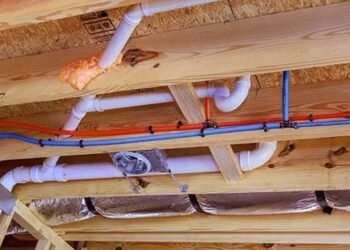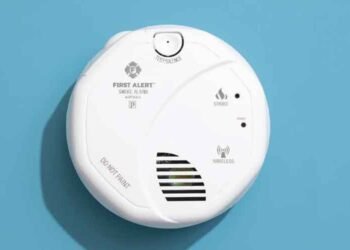As temperatures rise, finding an efficient and convenient way to cool your home becomes a top priority. For those who don’t have central air conditioning or need a temporary cooling solution, portable air conditioners offer a versatile and flexible option. Units like the portable AC 14000 BTU are particularly effective for cooling larger rooms or spaces, providing powerful cooling performance while still being easy to move from one room to another. In this article, we’ll explore the pros and cons of portable air conditioners, their key features, and how to choose the right one for your space.
Why Portable Air Conditioners Are a Popular Choice
Portable air conditioners have gained popularity in recent years due to their ease of use and flexibility. Unlike window air conditioners, which require installation in a fixed location, portable units can be moved from room to room as needed. This makes them an ideal solution for renters, homeowners who need cooling in specific rooms, or those who want an air conditioning unit without a permanent installation.
For larger spaces, a portable AC 14000 BTU unit can effectively cool rooms up to 500 square feet, making it a powerful option for living rooms, bedrooms, or home offices. These units are designed to provide the same cooling performance as window units or split systems, but with the added benefit of mobility. This flexibility allows users to enjoy cool air in any room they choose, whether it’s a bedroom during the night or a home office during the day.
Advantages of Portable Air Conditioners
1. Mobility and Flexibility
One of the greatest advantages of portable air conditioners is their mobility. Unlike traditional air conditioners that are fixed to a window or wall, portable units come with caster wheels and handles, making them easy to move around. Whether you need to cool your living room during the day and your bedroom at night, a quiet mobile air conditioner can be transported without any hassle.
This flexibility is particularly beneficial for renters or those who live in homes without central air conditioning. Portable air conditioners require no permanent installation, so you won’t need to worry about modifying your home’s structure. They are also great for spaces that cannot accommodate a window air conditioner, such as rooms with small or oddly shaped windows.
2. Easy Installation
Installing a portable air conditioner is a simple process that typically takes less than 30 minutes. Most units come with an exhaust hose that vents hot air out through a nearby window. The installation kit includes a window slider that adjusts to fit most window sizes, allowing the exhaust hose to be securely attached. This makes installation straightforward, even for those who aren’t particularly handy.
Since the unit is not permanently installed, it can be easily removed when the cooling season is over. This makes portable air conditioners a practical option for those who only need air conditioning during certain months or for specific events. Once the summer ends, the unit can be stored away without taking up too much space.
3. Powerful Cooling Performance
Despite their compact size, portable air conditioners can deliver impressive cooling power. A portable AC 14000 BTU unit is capable of cooling large spaces, such as living rooms or master bedrooms, ensuring that you remain comfortable even during the hottest days. The BTU rating of a portable air conditioner indicates how much cooling capacity it has, and 14,000 BTUs are generally sufficient for rooms between 400 to 500 square feet.
Portable air conditioners also come with adjustable settings, allowing users to fine-tune the temperature, fan speed, and air direction according to their preferences. Many models include built-in thermostats, so the unit will automatically turn on or off to maintain the desired room temperature. This ensures that the room remains consistently cool without wasting energy.
Key Features to Consider
When shopping for a portable air conditioner, there are several important features to consider to ensure you choose the best model for your needs:
1. BTU Rating
The BTU rating is the first factor to look at when selecting a portable air conditioner. This rating determines how much space the unit can effectively cool. For example, a 14000 BTU AC is suitable for larger rooms, such as open-plan living areas or master bedrooms. Smaller units, such as those with a 10,000 BTU rating, are ideal for smaller rooms like bedrooms or home offices.
Choosing the right BTU rating ensures that the unit can cool your space effectively. If the unit is too small for the room, it will struggle to maintain the desired temperature, leading to increased energy consumption. Conversely, a unit that is too powerful may cool the room too quickly, causing it to cycle on and off more frequently, which can reduce efficiency.
2. Noise Level
If you’re planning to use the portable air conditioner in a bedroom or office, noise level is a critical consideration. Some units can be quite loud, especially when operating at higher fan speeds. For quieter environments, look for a quiet mobile air conditioner with a low decibel rating. Many modern units are designed with noise reduction technology, ensuring they run quietly without disturbing your sleep or work.
The noise level of an air conditioner is measured in decibels (dB). For comparison, a normal conversation typically occurs at around 60 dB, while a quiet office has a noise level of about 50 dB. Portable air conditioners with noise levels below 55 dB are generally considered quiet and suitable for bedrooms or workspaces.
3. Dehumidification
In addition to cooling, many portable air conditioners also have a built-in dehumidification function. This is particularly useful in humid climates where reducing moisture in the air can make the room feel cooler and more comfortable. Some units can remove up to 70 pints of moisture per day, helping to create a more pleasant indoor environment.
If you live in a humid area, look for a portable air conditioner with a strong dehumidification feature. This will help you achieve the desired comfort level without having to purchase a separate dehumidifier.
4. Energy Efficiency
Energy efficiency is an important factor to consider when choosing any air conditioner. Portable air conditioners are generally more energy-efficient than central air systems, but some models are more efficient than others. Look for units with an Energy Star certification, which indicates that the unit meets certain energy-saving standards set by the U.S. Department of Energy.
Some portable air conditioners also come with energy-saving modes, programmable timers, and sleep functions, all of which can help reduce energy consumption. These features allow you to customize the operation of the unit based on your schedule, ensuring that it only runs when necessary.
5. Air Filters
Most portable air conditioners come with washable or replaceable air filters that help remove dust, allergens, and other particles from the air. This not only improves indoor air quality but also ensures the unit operates more efficiently. Regularly cleaning or replacing the filters will extend the life of your portable air conditioner and ensure it continues to function properly.
Cons of Portable Air Conditioners
While portable air conditioners offer many advantages, they also have some drawbacks to consider:
- Limited Cooling Area: Although a 14000 BTU AC can cool larger spaces, portable air conditioners are generally best suited for individual rooms. If you need to cool multiple rooms, you may need to move the unit from one space to another, which can be inconvenient.
- Exhaust Hose Requirement: Portable air conditioners require an exhaust hose to vent hot air outside, which limits where you can place the unit. The hose must be connected to a window or another vent, and its length can restrict the unit’s mobility.
- Noise: While many portable air conditioners are designed to operate quietly, some models can still produce noticeable noise, especially at higher settings. This can be a disadvantage if you plan to use the unit in a quiet environment like a bedroom.
Conclusion: A Flexible Cooling Solution
Portable air conditioners, such as the portable AC 14000 BTU, offer a convenient and efficient way to cool your home without the need for permanent installation. With their mobility, easy installation, and powerful cooling capabilities, these units are perfect for renters, homeowners, and anyone looking for a flexible cooling solution. By considering factors like BTU rating, noise level, and energy efficiency, you can find the perfect portable air conditioner to keep your space cool and comfortable all summer long.












